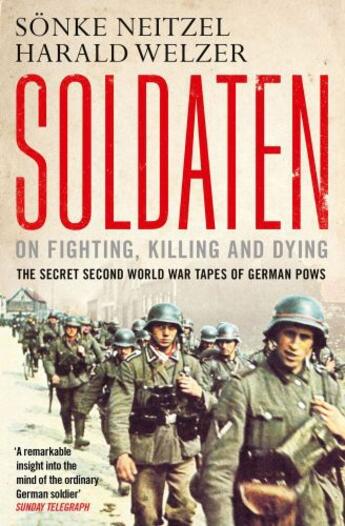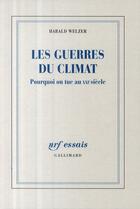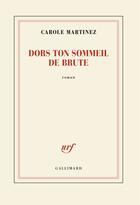-
Nombre de pages : (-)
-
Collection :
(-)
-
Genre :
(-)
-
Thème :
Non attribué
-
Prix littéraire(s) :
(-)
Résumé:
In November 2001, as the world still reeled from the attack on the Twin Towers, German historian Sonke Neitzel discovered an extraordinary cache of documents from the Second World War. The documents were the transcripts of German prisoners of war talking among themselves in prisoner of war... Voir plus
In November 2001, as the world still reeled from the attack on the Twin Towers, German historian Sonke Neitzel discovered an extraordinary cache of documents from the Second World War. The documents were the transcripts of German prisoners of war talking among themselves in prisoner of war camps, and secretly recorded by the allies. In these apparently private conversations the soldiers talked freely and openly about their hopes and fears, their concerns and their day-to-day lives. With a banality and ease which to the modern reader can appear shocking, they also talked about the horrors of war -- about rape, death and killing. Sonke Neitzel shared the material with renowned and bestselling psychologist Harald Wezler and they set about trying to make sense of the vast piles of documents, the hours of transcripts. The result is SOLDATEN, a landmark book which will change the way we look at soldiers and war, and is as relevant to our modern conflicts in Iraq and Afghanistan as it was to the soldiers of the German Army in 1945. Published to huge acclaim and controversy in Germany it was a number one bestseller there and reignited the debate about the banality of evil under the Nazi regime.
Donner votre avis















